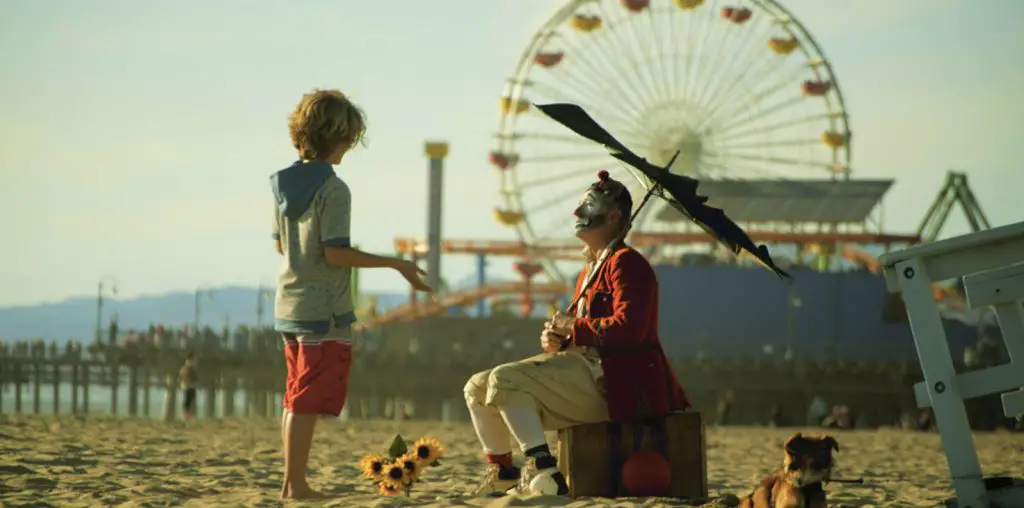
Hideo isn’t happy but at least he has the perfect relationship. After a grueling day waiting tables, he comes home to his beautiful girlfriend, Nozomi, and unloads his problems on her while she listens patiently. Following a relaxing co-ed bath, he unloads on her in another way. She’s always up for it. She was created for that very purpose. Nozomi is a sex doll. And she’s the only satisfying thing in Hideo’s sad, bitter life. Until one day, without warning, she comes to life.
For Nozomi, “finding a heart” is at once a blessing and a curse. Instead of waiting in bed, naked and undignified, for Hideo to come home, Nozomi now has freedom to leave the house and learn what it means to be human. Unfortunately, being human kind of sucks. There are many stories in the naked city, all of them terribly tragic. There’s a bulimic girl who sits alone in her apartment gorging herself on junk food, an insecure woman who is having a hard time dealing with her aging body, a single father and his young daughter and a man who eats the same meal alone every night.
Though she barely understands what a movie is, Nozomi somehow lands a job at the local video store (I’m sure applying in a sexy maid’s outfit didn’t hurt). It’s not long before she starts to fall for a fellow clerk named Jonichi. He takes her on dates and patiently answers her rudimentary questions about life and death. He doesn’t seem at all phased by her affinity for garbage or her lack of general knowledge. Granted his tolerance of her eccentricities may have more to do with her appearance than he lets on.
Nozomi’s independence is limited because she still must beat Hideo home each evening and pretend to be inanimate. Now intimacy with Hideo is more than just creepy. She’s become his sex slave. It really drives home (no pun intended) the notion of how much of the fun of sex is in the consent.
“Air Doll” is beautifully shot and performed. Doona Bae is marvelous as Nozomi. Her movements are as light and airy as the role requires. Though her face is absolutely doll-like, she somehow exudes both innocence and pain. But director Hirokazu Koreeda’s take on the human condition contains so much darkness that a peppering of jokes does little to lighten the mood. His message seems to be that life is lonely and that even when we do find someone, we’ll just end up hurting him or her in the end. Though Nozomi has essentially gained autonomy, there is little hope for her happiness, nor for the happiness of any of the other characters with which she crosses paths. The adult world is no place for someone with a child’s mind. Especially when that person is a sexy lady. She’s physically vulnerable as well. Though she has a soul, she is still a doll. She cannot eat, her seams are visible and she’s susceptible to accidental deflation. What’s worse, she doesn’t know how to control the power that she does have. Fundamentally, Nozomi is a beautiful version of Frankenstein’s Monster.
There’s little hope for the human characters in “Air Doll” as well. Nozomi laments that life is constructed in such a way that no one can do it alone. But finding someone to share it with doesn’t seem to solve anything either. Even meeting her creator leaves more questions than answers for her and the audience. Her God is kind but he can’t help. He just keeps creating and leaves his children to fend for themselves in a cruel world. Typical.
